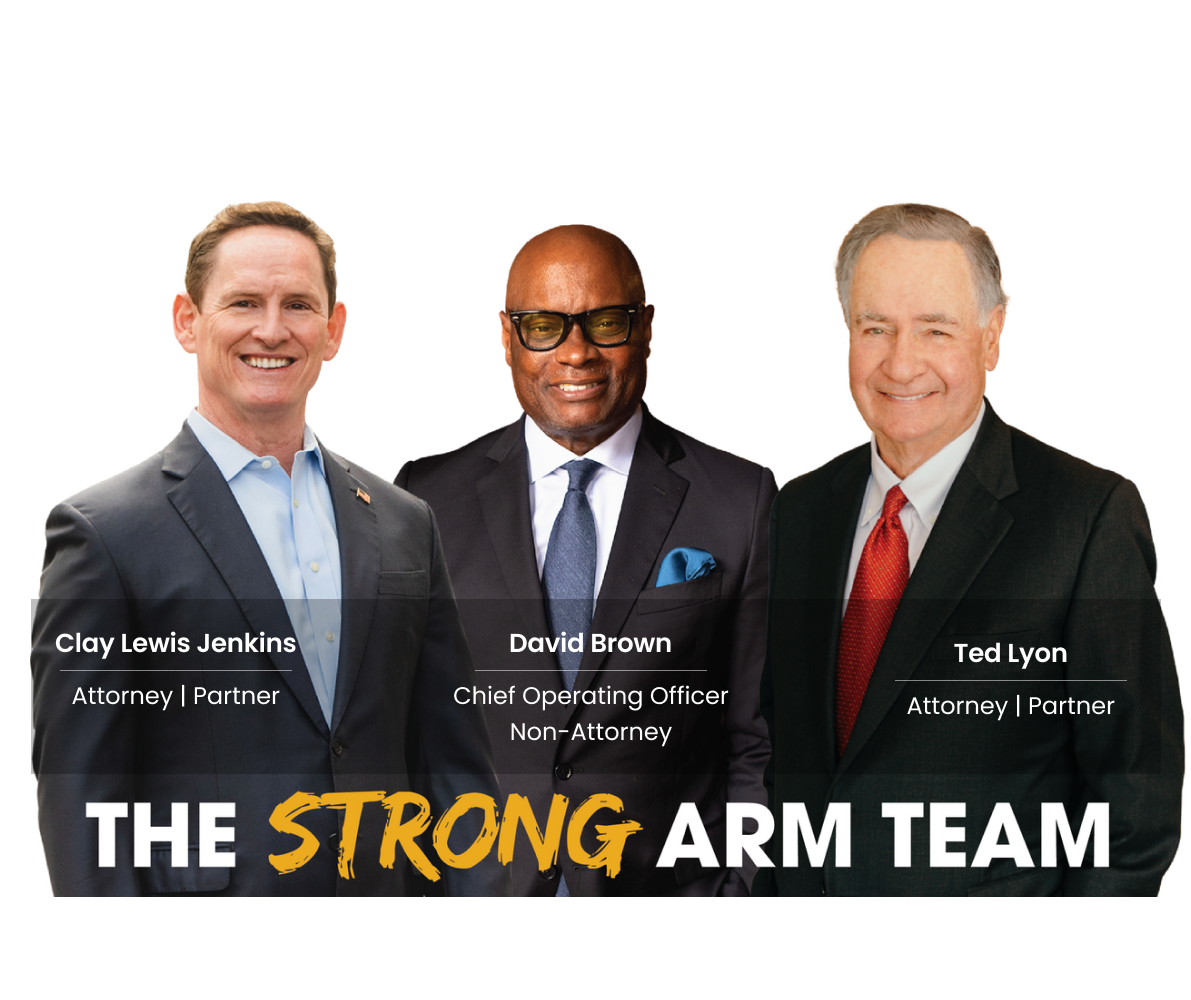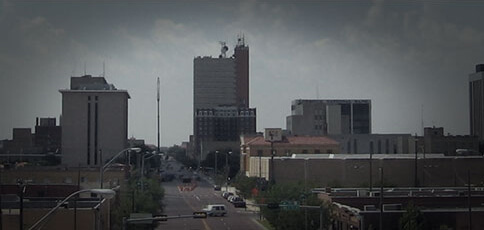
Every Texas driver knows a stop sign means they must bring their vehicle to a complete stop before proceeding through an intersection. Unfortunately, some drivers either fail to see the stop sign or choose to disregard it. This creates a serious risk of danger for other motorists in the area.
If you suffered accident injuries because someone ignored a stop sign and have questions about whether you are owed compensation, an Arlington running a stop sign accident lawyer can help. The Arlington car accident attorneys at Loncar Lyon Jenkins can help you figure out the right steps to take after your accident and make sure that you are treated fairly. Call today for a free consultation with a member of our team.
The Dangers of a Stop Sign Accident in Arlington, TX
In some cases, a stop sign accident may result in a minor fender-bender with minimal damage to the vehicle. The parties may choose to exchange information or simply part ways. In other situations, however, a stop sign accident can lead to serious and potentially permanent injuries for the victims. Stop signs play a critical role in managing the flow of traffic.
Texas Transportation Code Sec. 544.010 requires drivers to come to a complete stop at a stop sign. If there is a line on the road next to the stop sign, then the driver is required to stop at that line before entering the intersection of a crosswalk. Sadly, some drivers are too busy talking on the phone, texting, or checking email to notice that there is a stop sign. Distracted driving is dangerous because drivers often underestimate the amount of time that they take their eyes off the road when looking at their phones, according to the National Highway Traffic Safety Administration (NHTSA).
Other drivers may not recognize that an intersection has a two-way stop sign and presume that they have the right-of-way when entering an intersection. This can cause some of the most painful and severe car accidents because the driver entering the intersection can T-bone another vehicle that is entering the intersection correctly.
Sometimes stop sign accidents happen because a driver is intoxicated behind the wheel and unable to recognize the stop sign or because the driver is impatient and driving recklessly. Regardless of how you experienced a stop sign accident, Texas law allows victims of these accidents to hold the person who caused the collision responsible.

800-285-HURT (4878)Available 24/7 | 356 Days | se habla español
You May Be Eligible for Compensation After a Stop Sign Accident
Car accident victims often wonder what type of compensation they may be eligible to receive. The general rule is that a personal injury accident victim is entitled to receive compensation for any accident-related expenses. For example, if you got hurt in a T-bone accident and now have chronic back pain, you would be entitled to compensation for the medical treatment needed to address your back injury.
Here are a few other examples of compensation that you may be eligible to receive from the person who caused the accident:
- Estimated future medical treatment costs. If your injuries are not going to get better any time soon, then you may need medical care for the foreseeable future. You may be eligible to receive a reasonable sum for your future estimated medical costs.
- Lost income. If your injuries make it hard for you to work or if you had to use up vacation and sick days to cope, you may be eligible to receive compensation for your lost earnings. You should not have to give up your earnings because someone drove carelessly.
- Lost earning capacity. If your injuries are permanent, you are facing a lifetime of disability and physical limitations. If this has affected your earning capacity and forced you to change your job, you may be eligible to recover compensation for any reduction in earnings.
- Pain and suffering. No money can compensate for the “pain and suffering” and inconvenience of experiencing a stop sign accident. Texas allows victims of personal injury accidents to recover compensation for the pain that they have suffered and will probably continue to suffer.
Our Arlington running a stop signal accident attorneys can also seek compensation for property damage and other losses. Intangible losses you could recover include mental anguish and loss of enjoyment of life, among others. We can initiate negotiations with the liable party’s insurance company for compensation. If we cannot settle your case, we can pursue recovery for you at trial.
Wrongful Death Damages
If your loved one suffered severe injuries or catastrophic injuries in a fatal accident in Arlington, your family might be able to recover damages through a wrongful death lawsuit. We offer our condolences and will be there for your family if you want to take legal action against the negligent driver or any other liable parties.
If you qualify under state law for this legal action, our wrongful death attorney can provide legal representation for you while you take care of your loved one’s final arrangements.
Recoverable wrongful death damages include:
- The deceased’s physical pain and suffering before their death
- The deceased’s accident-related medical expenses
- Funeral, burial, and cremation fees
- Lost future income the deceased would have earned
- Loss of inheritance
- Loss of consortium
- Loss of companionship, care, and guidance
Our Arlington wrongful death attorneys will review the accident and determine what losses require financial compensation for your family. Our personal injury lawyers will be by your side during the entire legal process. You won’t have to worry, as our team will handle your case from beginning to end.
How to Prove Fault After a Stop Sign Accident in Arlington, TX
If you are ready to take action against the party who caused your injuries, you are probably wondering what steps you have to take. A stop sign accident is a type of personal injury accident. This means the victim must prove the other party acted negligently and that their injuries directly resulted from that negligence.
Negligence is a legal term used to refer to the standard of care we are all expected to follow daily. In general, the standard of care for drivers requires us to use reasonable care and skill when driving. This includes many factors, like following all traffic laws. Because there is a law in Texas requiring drivers to stop at stop signs, evidence of a stop sign violation can help you prove that the other party was driving negligently at the time the accident happened.
An Arlington running a stop sign accident lawyer can help you make sure that you have the evidence you need to hold the other party responsible. A car accident attorney from our law firm can also help you respond to any affirmative defenses that the other party may bring up against your claim. At Loncar Lyon Jenkins, we will meet with you in a free and confidential meeting so that we can discuss your stop sign accident and how we may be able to help. You can call us today. The statute of limitations for personal injury actions in Texas is generally two years, according to Texas Civil Practice and Remedies Code § 16.003, so do not wait to take action.

800-285-HURT (4878)Available 24/7 | 356 Days | se habla español
Our Arlington Running a Stop Signal Car Accident Attorneys Work on Contingency
We understand that you are already facing financial losses. We’re not here to add to your stress. Instead of charging upfront fees to start your car accident case, our legal team will represent you on contingency. This means we only take a percentage of your potential outcome at the end of your case.
You can access legal representation without incurring any additional risk of financial loss. You will also know that we are working hard on your case because when you win, we win.
Call Us Today for Help After a Stop Sign Accident in Arlington, TX
You could recover other losses from your accident, and we want to ensure you receive fair compensation. Working with our Arlington running a stop signal accident lawyer will help ensure you ask for every penny you deserve. Call in the Strong Arm and contact Loncar Lyon Jenkins to start taking action. You can learn more during a free consultation with our accident law firm today.














